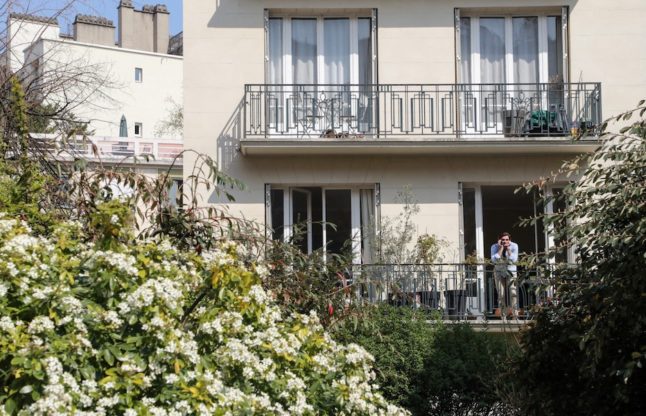The bail mobilité is a relatively recent invention in France. It was created by the Elan law in 2018 and is a rental contract intended for people who have a temporary need for housing due to their professional activity – whether that be a work transfer, temporary posting, or status as a student.
In order to qualify, the tenant must show proof that at the beginning of the lease they are in one of the following approved situations: enrolled in professional training or higher education, completing an apprenticeship or internship, on a temporary posting or having received a work transfer, or working as a volunteer as “part of a civic service.”
You can find more specific information about these situations on the French government website HERE.
This essentially means that if you are visiting France for an extended period of time for tourism purposes, you likely would not be able to rent using a bail mobilité. This might be a source of confusion for those who see these lease arrangements advertised on websites such as Airbnb (more on this below).
There are some rules that lodgings listed as “mobility leases” must follow. They must always be furnished rentals – meaning they are required to provide the tenant with specific items such as bedding, dishes, and other things. You can learn more HERE.
READ MORE: Renting property in France: Should I go for furnished or unfurnished?
Next, the lease itself must be between one to ten months. It cannot exceed ten months. Additionally, mobility leases cannot be renewed. If the tenant and landlord want to renew the rental, it will have to be within the context of a standard furnished rental contract.
With a mobility lease, the owner is not allowed to ask the renter for a security deposit (dépôt de garantie). However, they do have the right to request a guarantor (un garant, or sometimes referred to as a caution).
In terms of the actual lease itself, it must include certain documents, similar to a standard furnished rental contract. The lease must include an inventory of fixtures (état des lieux), the technical diagnostic file (this includes the energy rating, for example), and if the property is located in a condominium or apartment building, then the regulations concerning common areas.
The tenant retains the right to move out at any time during the lease – as long as they give one month’s notice to the owner (or the real estate company if the accommodation is managed by an agency). Typically, this is done via registered letter (lettre recommandée) with acknowledgement of receipt.
On the other hand, the landlord cannot terminate the lease before the end date (unless the tenant does not respect their obligations, such as paying rent).
When it comes to determining the rental price of a dwelling listed under a bail mobilité, the landlord can set the rent by their own standards, as long as the lodging is not located in a zone tendue (housing shortage area) and therefore is not bound by local rent caps. However, rent cannot be revised during the lease and it should be listed within the rental contract.
Finally, if the property is being rented to more than one person (a colocation), the lease cannot require the roomates to have a “solidarity clause.” This is a part of the lease that would outline the requirement of the co-tenant(s) to pay the rents even if another co-tenant gives notice and moves out. Typically, this would also outline when that expectation for the other tenant(s) to cover remaining rents would end.
Common questions about mobility leases
First, the bail mobilité is often confused with the “secondary-residence lease.” The two differ primarily due to the fact that a mobility lease can constitute a primary residence, depending on the duration of the lease.
The next common question regarding mobility leases is whether it is possible to rent one via an online rental platform, such as Airbnb. The short answer is – yes. However, as mentioned before, the bail mobilité is only available to specific groups of people.
Renting with a mobility lease absolves the requirement to pay the ‘tourist tax’ (taxe de séjour) in certain cities – as it is a residential lease and not a tourist accommodation. The tourist tax is automatically added to Airbnb charges, but in certain French cities such as Paris, Lyon, Bordeaux, Toulouse, Nantes, Lille Nice, Strasbourg, and Marseille, booking with a mobility lease automatically exempts the renter form paying the tourist tax.
READ MORE: What are the rules on renting out French property on Airbnb?
In other parts of France, people signing mobility leases via Airbnb may be charged a tourist tax, but this can be refunded by request at the local town hall.
Additionally, renting a property under a mobility lease exempts the owner from having to do a “change of use” declaration with the town hall, as the property will technically continue being used as residential accommodation, rather than touristic. This authorisation is mandatory for furnished tourist accommodation in many French cities.



 Please whitelist us to continue reading.
Please whitelist us to continue reading.
Member comments